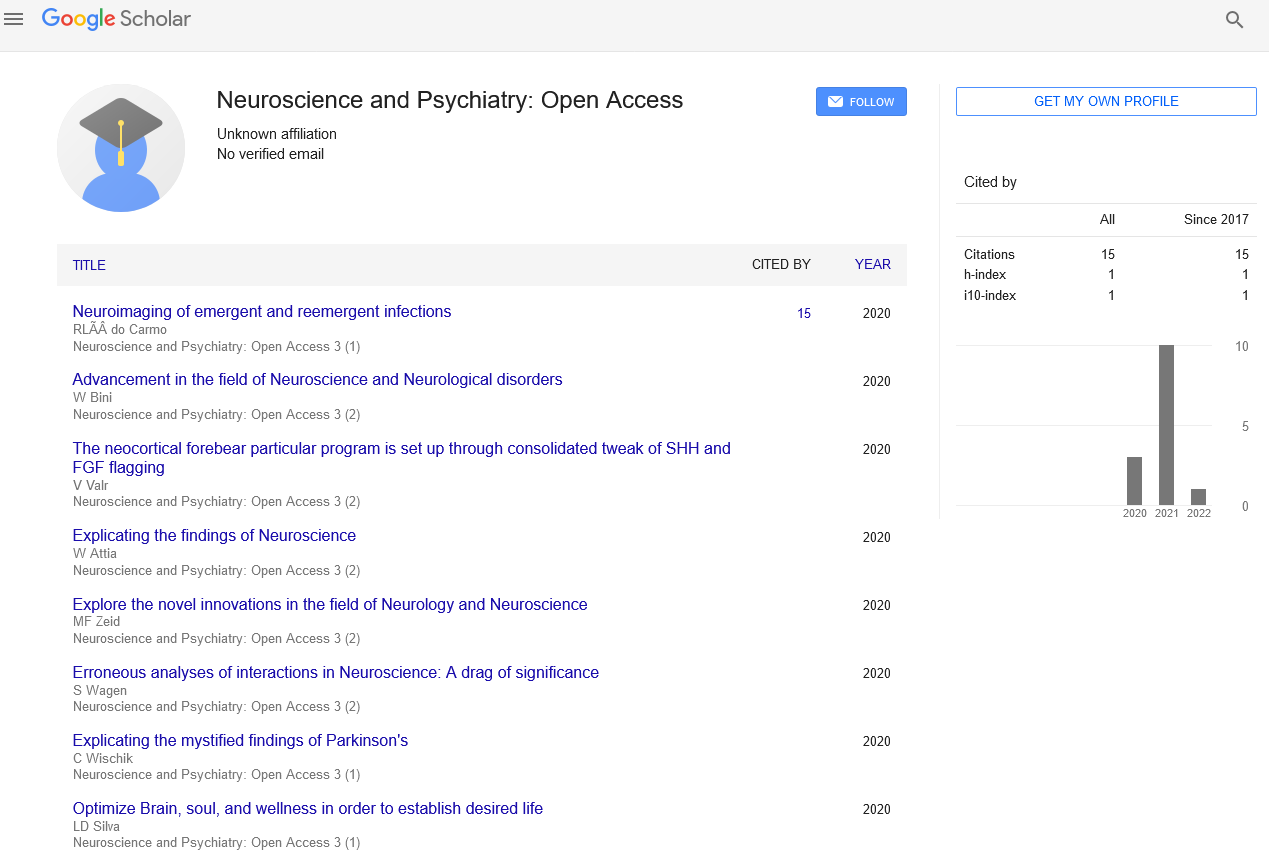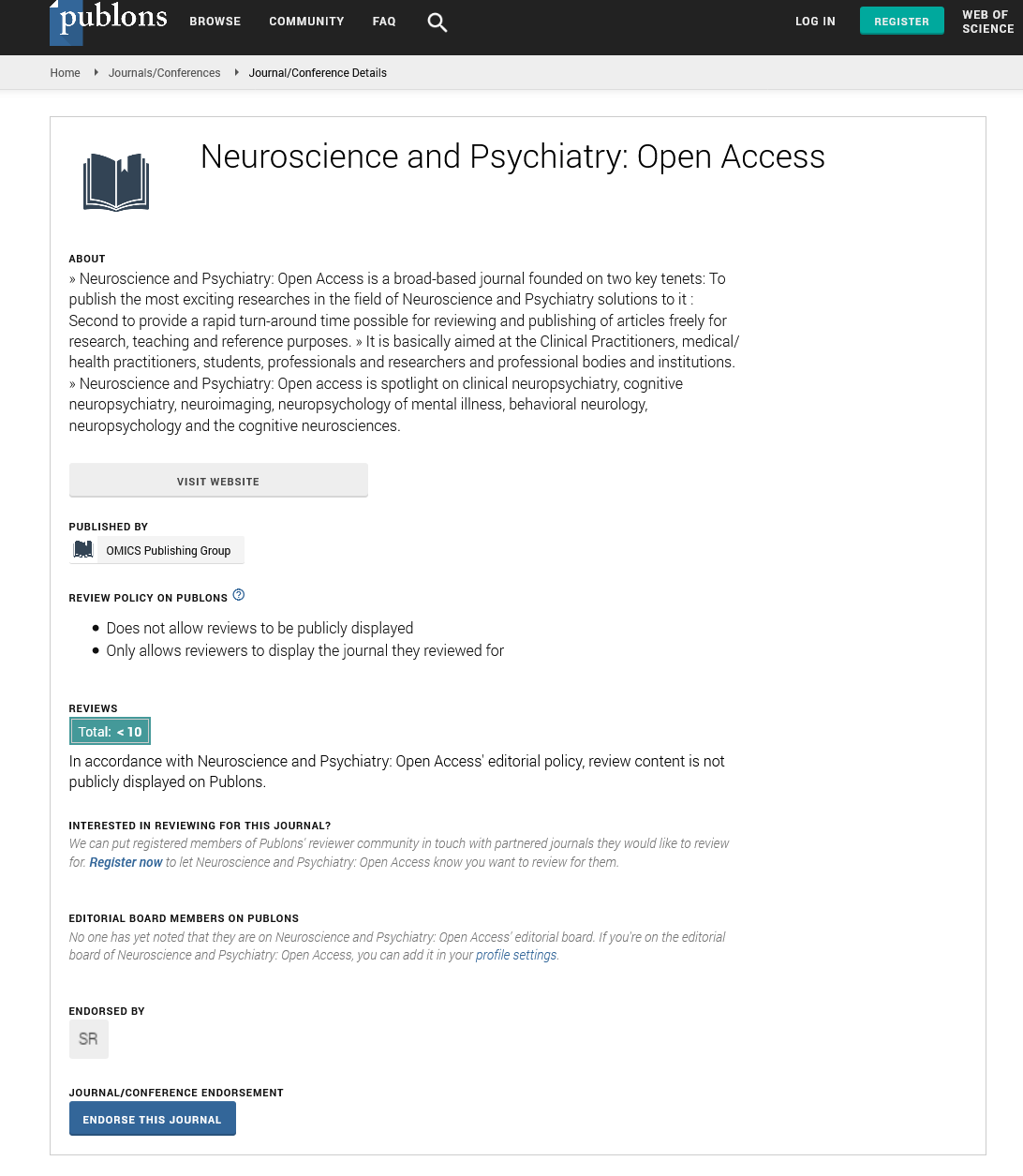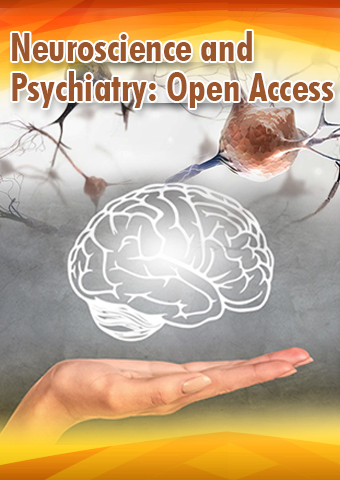Commentary - Neuroscience and Psychiatry: Open Access (2024) Volume 7, Issue 5
The Interface of Neuroscience and Artificial Intelligence in Mental Health
- Corresponding Author:
- Terje Falck-Ytter
Department of Neuroscience,
Karolinska Institute,
Stockholm,
Sweden
E-mail: terje.falck@psyk.uu.se
Received: 09-09-2024, Manuscript No. NPOA-24-140633; Editor assigned: 12-09-2024, PreQC No. NPOA-24-140633 (PQ); Reviewed: 26-09-2024, QC No. NPOA-24- 140633; Revised: 07-10-2024, Manuscript No. NPOA-24-140633 (R); Published: 14-10-2024, DOI: 10.47532/npoa.2024.7(5).274-275
Description
In recent years, the intersection of Neuroscience and Artificial Intelligence (AI) has emerged as a transformative force in the field of mental health. This convergence leverages advanced technologies and deep insights into brain function to revolutionize the understanding, diagnosis, and treatment of mental health disorders.
Neuroscience insights
Neuroscience, the study of the nervous system and brain, provides foundational knowledge about how neural circuits operate and how disruptions within these circuits can lead to various mental health conditions. Traditionally, neuroscience has relied on techniques such as MRI (Magnetic Resonance Imaging), EEG (Electroencephalography), and PET (Positron Emission Tomography) scans to visualize brain structure, activity patterns, and connectivity. These imaging modalities offer crucial insights into the biological underpinnings of disorders like depression, schizophrenia, and anxiety disorders.
Despite these advancements, the complexity of the human brain presents challenges in fully understanding the mechanisms underlying mental health disorders. This is where Artificial Intelligence (AI) steps in.
The role of artificial intelligence
AI encompasses a range of technologies that enable computers to perform tasks that typically require human intelligence, such as learning, reasoning, and problem-solving. In the context of mental health, AI algorithms can analyze vast amounts of data from genetic information and brain imaging to behavioral patterns to uncover hidden correlations and patterns that might elude traditional analysis methods.
Machine Learning, a subset of AI, enables computers to learn from data and make predictions or decisions based on that learning. This capability is particularly valuable in mental health diagnostics and personalized medicine. AI algorithms can process and interpret complex datasets, aiding in early detection and accurate diagnosis of mental health conditions. For instance, AIpowered systems can analyze brain scans with high precision, identifying subtle abnormalities or patterns indicative of various disorders.
Advancing treatment approaches
Beyond diagnostics, AI is reshaping treatment approaches in mental health care. Virtual Reality (VR) simulations, guided by AI algorithms, offer immersive environments for therapeutic interventions such as exposure therapy for PTSD (Post-Traumatic Stress Disorder). These simulations provide controlled environments where patients can confront and gradually overcome their fears in a safe setting.
Moreover, AI-driven technologies are enhancing the efficacy of therapeutic interventions by personalizing treatment plans based on individual patient data. By integrating genetic, neurobiological, and behavioral information, AI enables clinicians to tailor interventions that are more likely to be effective for specific patients, moving towards a model of precision psychiatry.
Challenges and considerations
While AI holds promise for revolutionizing mental health care, it also presents ethical and practical challenges. Privacy concerns, data security, and biases in AI algorithms are critical considerations that require careful attention. Ensuring transparency in AI development and validation against clinical standards is essential to maintain ethical standards and protect patient welfare.
Moreover, integrating AI into clinical practice requires collaboration between neuroscientists, clinicians, AI specialists, and policymakers. Robust regulatory frameworks and guidelines are needed to govern the ethical use of AI in mental health care and ensure that innovations translate into tangible benefits for patients.
Future directions
Looking ahead, the synergy between neuroscience and AI promises to unlock new frontiers in mental health care. Continued advancements in AI technologies, coupled with deeper insights from neuroscience research, hold the potential to transform how mental health disorders are understood, diagnosed, and treated. By harnessing the power of AI to decode neural complexities and personalize treatment approaches, we can aspire towards a future where mental health care is more precise, accessible, and effective.
In conclusion, the interface of neuroscience and artificial intelligence represents a pivotal paradigm shift in mental health care. By bridging the gap between biological insights and technological innovation, this convergence offers unprecedented opportunities to improve outcomes for individuals affected by mental health disorders. As we navigate this transformative journey, collaborative efforts across disciplines will be essential to harnessing the full potential of AI in advancing mental health care in the 21st century.


